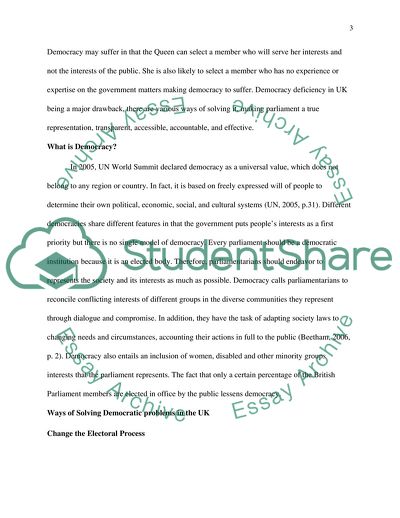Cite this document
(Resolving Democratic Deficiencies in British Parliament Essay - 1, n.d.)
Resolving Democratic Deficiencies in British Parliament Essay - 1. https://studentshare.org/law/1791746-the-british-parliament-suffers-from-serious-democratic-deficiencies-discuss-how-might-any-democratic-problems-in-parliament-be-resolved-in-the-uk
Resolving Democratic Deficiencies in British Parliament Essay - 1. https://studentshare.org/law/1791746-the-british-parliament-suffers-from-serious-democratic-deficiencies-discuss-how-might-any-democratic-problems-in-parliament-be-resolved-in-the-uk
(Resolving Democratic Deficiencies in British Parliament Essay - 1)
Resolving Democratic Deficiencies in British Parliament Essay - 1. https://studentshare.org/law/1791746-the-british-parliament-suffers-from-serious-democratic-deficiencies-discuss-how-might-any-democratic-problems-in-parliament-be-resolved-in-the-uk.
Resolving Democratic Deficiencies in British Parliament Essay - 1. https://studentshare.org/law/1791746-the-british-parliament-suffers-from-serious-democratic-deficiencies-discuss-how-might-any-democratic-problems-in-parliament-be-resolved-in-the-uk.
“Resolving Democratic Deficiencies in British Parliament Essay - 1”. https://studentshare.org/law/1791746-the-british-parliament-suffers-from-serious-democratic-deficiencies-discuss-how-might-any-democratic-problems-in-parliament-be-resolved-in-the-uk.


